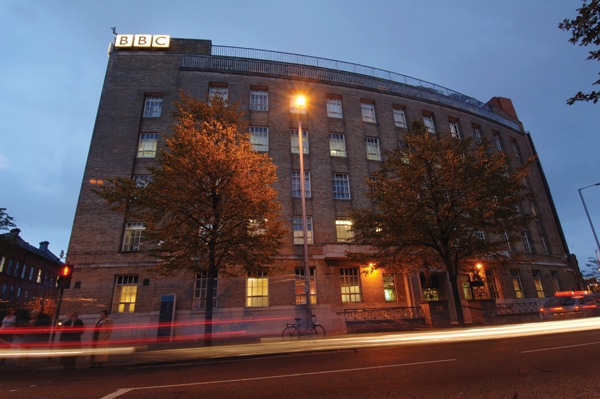Broadcast plans
Two station closures and a halt to regional news websites are the main results from the BBC’s strategic review. Peter Cheney looks at what lies ahead for the Beeb.
The BBC’s reach within the UK cannot be denied. Ninety-eight per cent of adults click, listen or watch it each week. A third of the population goes to the website each month.
Where its quality is good, particularly in news and natural history, its reputation extends worldwide. However, critics claim that the BBC has overstretched itself by going into magazine publishing and extra digital channels. Free access to BBC News Online also makes it harder for newspaper websites to charge readers to see their websites.
This review takes in all parts of the BBC’s national work – in the TV, radio and online media – and has been carried out by its senior management.
Plans
On TV, there would be more history and science on BBC1, accompanied by extra drama and comedy on BBC2. A more serious tone would be adopted by BBC4 – tasked with reducing comedy and entertainment – and indeed Radio 4 with its increased commitment to “ambitious knowledge projects”. One such example is the planned serialisation of ‘Life and Fate’ – an epic but relatively unknown novel about 20th century Russia – in early 2011.
Elsewhere, BBC 6 Music and the Asian Network are earmarked for closure with BBC Online spending (£177 million) to fall by a third by 2013. Two teenage ‘brands’ for young people – Switch on TV and Blast for learning – are underperforming and so would also end; it recognises that Channel 4 has the lead here. In the long term, the corporation would move away from publishing magazines in the UK.
This is all part of the drive to do “fewer things better”. Fans of 6 Music, which broadcasts alternative music, and the Asian Network have protested. Their budgets, though, would be spent on similar work within the corporation.
The programme library would be opened up to the public and 50 per cent more programmes would be made outside London by 2016. Seventeen per cent of production would take place in the devolved nations. BBC Northern Ireland plans to ‘play to its strengths’ e.g. TV drama production and investigative journalism.
New boundaries must be set. Some of these involve “limiting activity” through the cuts described above. Others focus on “clearer BBC behaviour” i.e. always putting quality before volume, and defending impartiality and independence from political and commercial influence.
The media is in flux, the review claims, so now is the “right moment to take a hard look at what the BBC should do and where it delivers most value.” Key ongoing changes include the digital TV switchover (agendaNi issue 34, pages 40-41), the move towards universal broadband and uncertainty in the commercial media sector.
In the midst of this, the BBC claims to offer a “civic and universal” service, which the markets cannot guarantee alone. It would also be able to spend more of the licence fee on content after the switchover ends in 2012. Overhead and infrastructure costs, cut by half over the last 10 years, would fall by a further quarter by 2016.
The review was presented to the BBC Trust, which sets overall strategy. The trust has, in turn, published the proposals and its initial response.
“The public pick up the bill for the BBC and it is right that it constantly evolves to meet their expectations,” said Sir Michael Lyons, who chairs the trust. He foresaw a “more disciplined and sharply focused” organisation but some difficult choices also had to be made.
Comments can be made up to Tuesday, 25 May. Provisional conclusions will be published by the trust over the summer with a final strategy following in the autumn. The BBC’s management will then be expected to put forward formal proposals to put those changes into effect. More consultation will follow at some stage.
Director-General Mark Thompson said that these would be “easy decisions” and this was a moment for “focus and rationalisation” after a time of growth.
Reaction
Commercial competitors are naturally jealous of the Beeb; recession-related falls in advertising revenues have hit them hard while the licence fee guarantees a steady, permanent income. Foremost among the critics is Rupert Murdoch’s News International but other newspaper groups also object to BBC News Online’s increasingly local reach.
A commitment to not launch any new online services at a more local level was met with suspicion by the Newspaper Society. “In view of past experiences, the industry will need to be convinced that any limitations will be imposed or will work in practice, enabling local newspapers to develop their digital services,” a spokeswoman said.
In writing, the commitment only applies to England. However, BBC Northern Ireland has also confirmed that it will not be launching any more new local services.
Four journalists will be redeployed outside Belfast, a spokeswoman added, to bring in stories from “all parts of Northern Ireland that reflect the interests and views of the wider community.” Their reports will go on TV, radio and online.
The Conservatives are also seen as BBC ‘sceptics’ or are at least portrayed that way by Labour. That impression was apparently built up in the past because the Tories were for private investment and against public subsidies. However, the party now sees itself as a strong supporter of the corporation.
Culture Secretary Bed Bradshaw has warned against a political “running commentary” on the corporation’s decisions as this would compromise its independence. Bradshaw, though, has been a critic in the past, especially over bonuses, and has suggested reducing the licence fee.
Opposition spokesmen were more vocal with Tory Jeremy Hunt suggesting the BBC should be “less expansionist”. Don Foster, for the Liberal Democrats, said the overgrown organisation needed “pruning” and the report signalled “the end of the BBC roaming wherever it fancied.”
agendaNi did contact the main local parties for their views on the plans but none were available to comment by the time of going to press.
More than 7,000 jobs have been cut at the BBC over the last five years and the broadcasting union Bectu expects 600 more losses if the proposals are confirmed. The NUJ has demanded savings in executive pay instead of programmes and content.
Part of the perceived problem is that the BBC is trying to be all things to all people. However, unlike the rest of the media, it is a public service so, in essence, it needs to give something to all people.
Striking that balance is neither easy nor cheap.
- £131m BBC contribution to Northern Ireland economy (estimate)
- 40% Radio spend target outside London
- £10m Annual increase in children’s programming
- 90% Share of licence fee for high quality content
- 20% Cut in import programme budget






